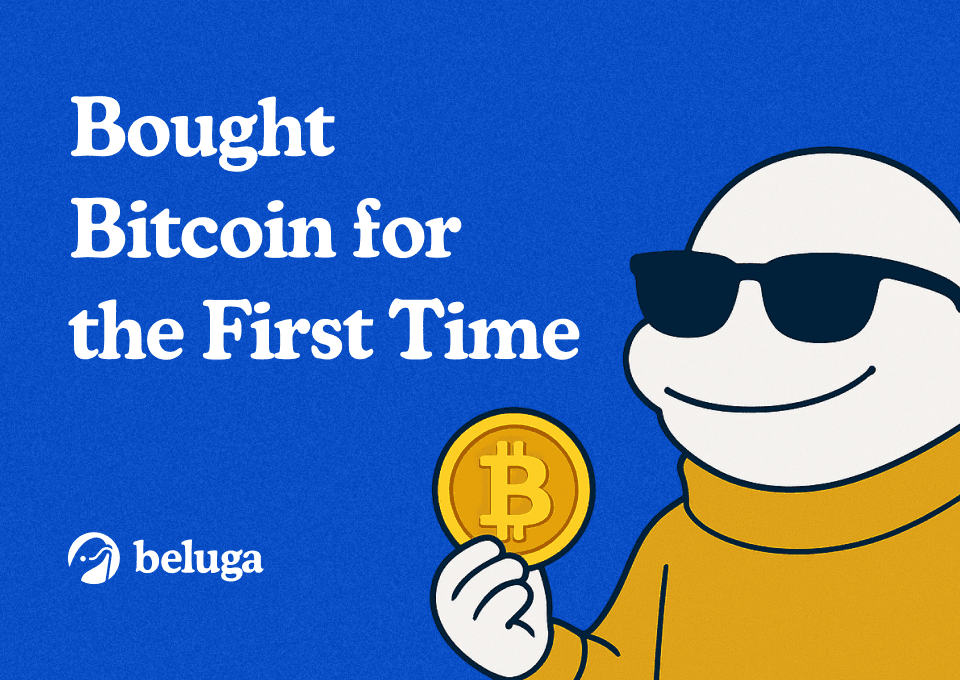Should I buy Bitcoin or the Bitcoin ETF?
By Will McKinnon Updated October 31, 2024

Summary
- Bitcoin ETFs are finally live, and now everyone has to ask themselves whether they’d rather own Bitcoin itself or the ETF
- ETFs can be traded like normal stocks and bonds, even from a tax-free IRA account
- There is huge demand for the Bitcoin ETF with billions of dollars traded in its first few days
Introduction
With the approval of a spot Bitcoin ETF finally live, many market participants are now forced to make a decision whether they want to purchase actual Bitcoin or shares of an ETF. In this article, we will dive into the information you need to make the right choice for yourself.
What is an ETF?
ETF stands for “exchange traded fund”, and has been a pillar of traditional finance trading for many years. ETFs are basically exactly what the name stands for: a fund that can be traded throughout the day on an exchange. This may come in the form of a fund that tracks the price of the S&P 500, biotech companies, or commodities. One of the main use cases of an ETF is to allow investors to purchase assets that would normally be difficult to buy like gold.

Gold ETF (GLD) Price Action, Source: CryptoSlate
While many ETFs hold a number of different assets like bonds or stocks, ETFs can also have large exposure to a single asset, as is the case with the popular Gold ETF. This means investors can purchase shares as they would any other stock, and have single-asset exposure without having to jump through the hoops of actually going out and buying physical gold.
How does a Spot Bitcoin ETF work?
After a long-awaited approval, Spot Bitcoin ETFs are officially live in the US. While Bitcoin Futures ETFs have been around for some time, this is an important upgrade. Futures do not trade with the actual underlying asset, but rather track the price of derivatives. In other words, you are not buying a share of a big bag of Bitcoin, but rather a share of something meant to track the price of Bitcoin.
Spot ETFs trade on the actual value of the underlying asset; in this case, ETF issuers buy Bitcoin and the share price is equal to the total value of the Bitcoin held in the ETF divided by the total number of shares issued. As each ETF has a different number of Bitcoin and shares, prices may vary significantly from each other.
Should I buy Bitcoin or the Bitcoin ETF?
While the decision of whether to buy Bitcoin or shares of a Bitcoin ETF is dependent on the specific investor, we will dive into the pros and cons of each so that you can make the right decision for yourself.
Bitcoin Pros and Cons
Pros:
- Self-custody means you and only you control your assets
- No price premium other than exchange fees
- Able to use your Bitcoin for payments, to buy other tokens, yield farming, and more
Cons:
- Security of your assets depends on you, which can be risky if you are not educated in best security practices
- Sometimes exchange fees can be expensive
Bitcoin ETF Pros and Cons
Pros:
- A qualified, institutional custodian handles security of your assets so you don’t have to worry about it yourself
- ETF shares can be bought through any normal brokerage account, just like any stock
- Bitcoin ETFs are purchasable through IRA accounts
Cons:
- Some ETFs may have hidden management fees
- ETFs tend to trade at a premium or discount versus the underlying asset
Conclusion
In a nutshell, we believe for experienced crypto investors that the benefit of self-custody and the ability to move your funds at will is enough to stick with buying Bitcoin itself. On the flip side, anybody making their first forays into crypto or still getting comfortable with the idea of self-custody should likely go for the ETF.
It’s exciting times to have such an easy option for non-crypto natives to enter the ecosystem, and the billions of dollars in volume already traded prove a significant demand is there for spot Bitcoin ETFs.
Join the Beluga Brief
Dive deep into weekly insights, analysis, and strategies tailored to you, empowering you to navigate the volatile crypto markets with confidence.
Never be the last to know
and follow us on X








